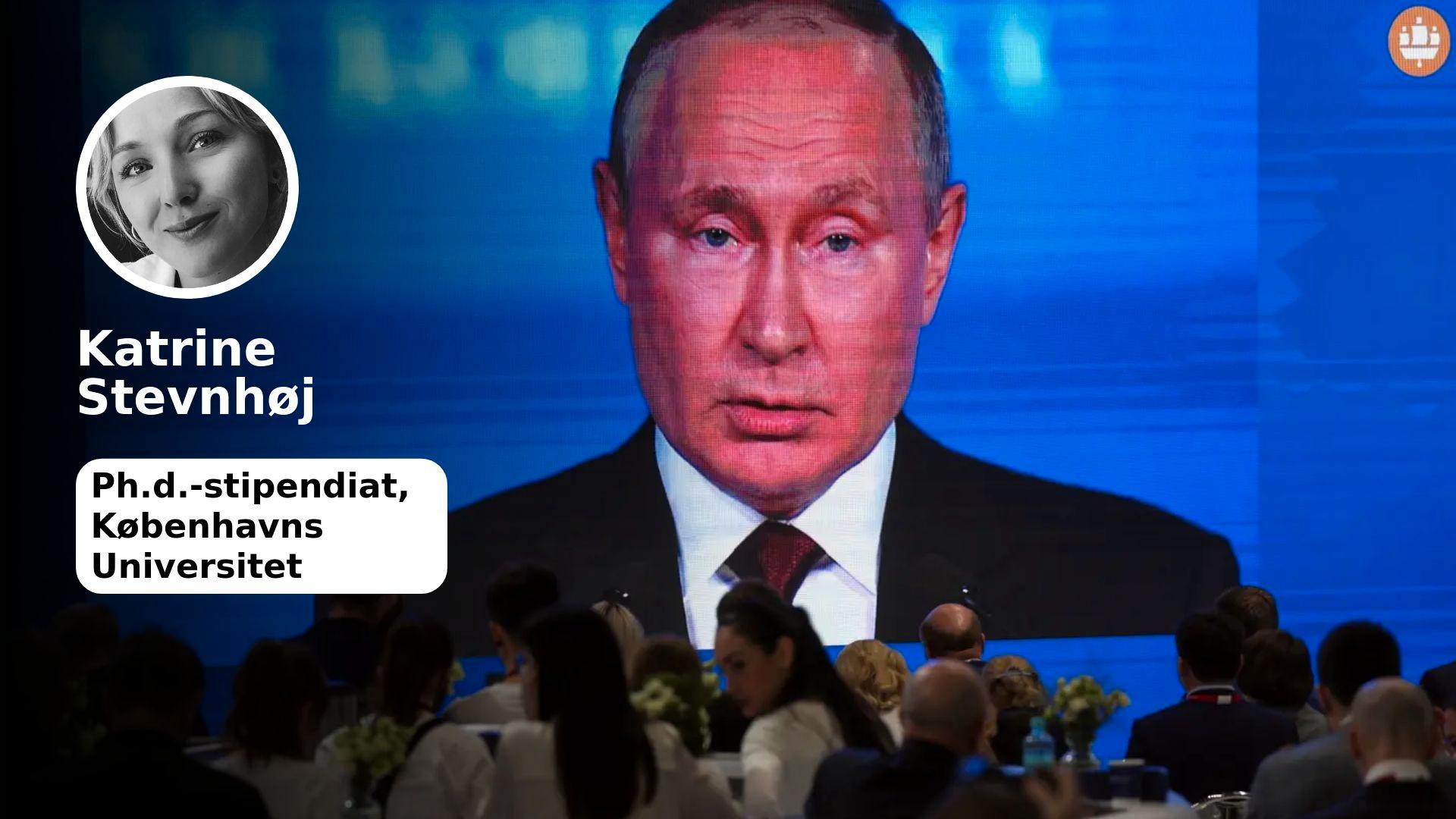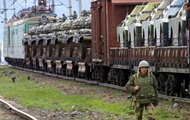-
–Katrine Stevnhøj
PhD student, University of Copenhagen
–
—
July 31, 2022 20:30
Last updated just now
—
Vladimir Putin’s rhetoric is reminiscent of the Soviet-era persecution of dissidents, writes Katrine Stevnhøj. Putin’s regime has tightened its authoritarian grip after the invasion of Ukraine.
Chronicle
This is a chronicle. Opinions in the text are the responsibility of the writer.Translated from Danish by Bjørg Hellum
After Russia’s invasion of Ukraine five months ago, the regime has tightened its authoritarian grip on Russian society. But the suppression of political rights in contemporary Russia has been going on for a long time.
According to the Russian human rights organization OVD.info, at least 16,380 people have been arrested in connection with anti-war protests since the invasion began on 24 February. The vast majority – approximately 15,000 – of the arrests took place during the first four weeks of the war.
On March 5, Vladimir Putin signed a new law making it a criminal offense to distribute “fake news” about the Russian army. Violation of the law is punishable by up to 15 years in prison.
After the law was introduced, criticism of the system and protests have decreased to a large extent. The authorities do not hesitate to use the legislation against those who still dare to speak out. Since the start of the invasion, at least 194 criminal cases have been opened related to anti-war protests, including 72 relating to the distribution of “fake news”. Furthermore, at least 3,303 administrative cases have been initiated about “discrediting the army”, according to OVD.info.
The media landscape is also exposed to increased political repression. According to OVD.info, at least 5,500 websites have been blocked by the authorities since February. At least 26 media outlets have had to close or suspend their work in the country. Several independent media have chosen to resume work from abroad, including Novaja Gazeta and TV-Dozjd.
Several social media have also been blocked. Furthermore, Meta, which owns, among other things, Facebook, Instagram and Whatsapp, has been labeled an “extremist organisation”.
But suppression of political rights in contemporary Russia is nothing new. The seeds of the resurgence of authoritarianism we are witnessing now were already laid ten years ago.
Gradual suppression
In July 2012, the infamous law on “foreign agents” was introduced. In its original form, the law targeted organizations that receive financial support from foreign sources. When an organization is labeled as a foreign agent, it is subject to a number of legal requirements. If it does not meet the requirements, it may risk being closed. The law has been extended several times and now also covers the media and individuals. In 2022, the law was once again tightened. According to the new legislation, anyone who is “under foreign influence” can now be declared a foreign agent in Russia.
The law on “homosexual propaganda” has also been tightened. The law, which was introduced in 2013, made it a criminal offense in its original form to promote “non-traditional” family forms, such as same-sex relationships, to minors. With the new tightening, the law does not only apply to promotion aimed at minors, but promotion in general.
The curtailment of political rights really accelerated in 2021. In 2021 alone, 101 new foreign agents were added to the authorities’ ever-growing list, compared to 12 new foreign agents in 2020. For 2022, the number is already 79. As of today, there are a total of 253 media, organizations and persons on the government’s list of foreign agents. The majority of these are media.
Also, organizations may be labeled as foreign agents, which may ultimately force them to close. When Russia’s oldest human rights organization, Memorial, was closed at the end of last year, many interpreted it as a definitive consolidation of Russia as an authoritarian regime.
Traitors and patriots
The legislation not only helps to undermine political rights, but contributes to a polarization of society. It is a development that is supported by the language used in the legislation.
According to a survey published in June by the state-owned analysis institute VTsIOM, 61 percent of those questioned indicated that the term “foreign agent” had negative connotations, while two percent saw it in a positive light. Among the negative connotations, 14 percent of those asked associated it with the word “spy”, 7 percent with “traitor”, and 6 percent with the Soviet-sounding “enemy of the people”.
The rhetoric of those in power is also reminiscent of the Soviet-era persecution of dissidents. On March 17, Putin gave a hair-raising speech reminiscent of Soviet-era rhetoric about public enemies. In his speech, he made it clear that there is no place for political opponents in today’s Russia.
“The Russian people will always be able to distinguish true countrymen from scum and traitors. They will spit them out like an insect that has flown into their mouth,” the president said.
Now the fear no longer only comes from above, but is omnipresent in society
–
After the speech, there have been examples of self-incrimination in the form of persecution of critics of the system. For example, several activists experienced having their front door painted with words such as “traitor” and “enemy of the people”. Furthermore, there have been examples of system critics who have been reported to the authorities by their fellow citizens.
Those in power in the Kremlin have long practiced the influence of fear on the population. Now the fear no longer only comes from above, but is omnipresent in society.
–
Related posts:
The First Night Of The Newlyweds Ends Sadly, The Bride Is Dragged Into The Room By Her Husband's Fam...Ukraine Launches Full-Scale Counterattack as Tensions Rise with Belarus Deploying Russian Nuclear We...Mahsa Amini: Massive fires and shootings in "Evin prison" for political prisoners in TehranRising Excise Taxes Threaten Increase in Medicine Prices in Russia



